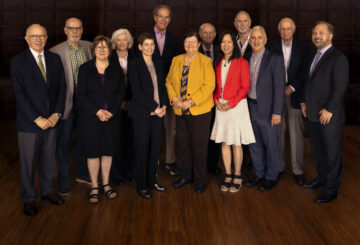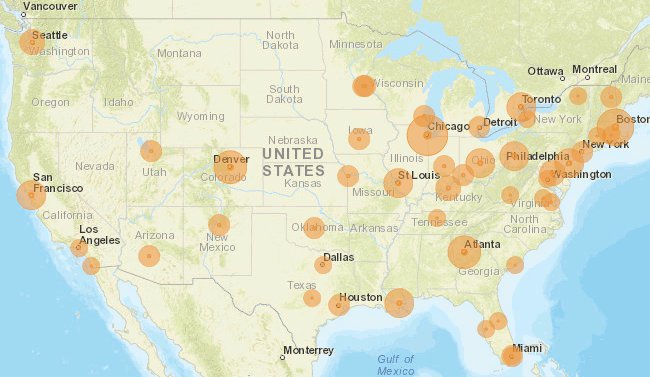-
Fiscal Policy Analytics of Tax Wedge Reduction, Financial Transactions Tax and Tax Treaty Shopping
- Pietro Tommasino (Bank of Italy), The Stock Market Effects of a Securities Transaction Tax: Quasi-Experimental Evidence From Italy
- Maarten van ‘t Riet (CPB Netherlands Economic Policy Analysis) and Arjan Lejour (CPB Netherlands Bureau for Economic Policy Analysis), Profitable Detours: A Network Analysis of Treaty Shopping
-
Housing Markets During the Recent Boom/Bust Cycle: Implications for Labor Outcomes and Public Finance
- Ron Cheung (Oberlin College), Chris Cunningham (Federal Reserve Bank of Atlanta) and Stephan Whitaker (Federal Reserve Bank of Cleveland), Household Debt and Local Public Finances
- Chris Cunningham (Federal Reserve Bank of Atlanta), The Role of Housing Equity for Labor Market Activity
- Gregory Burge (University of Oklahoma) and lingxiao zhao (University of Oklahoma), Housing Wealth, Property Taxes and Labor Supply Among the Elderly
-
Local Taxation and Urban Form: Research From Lincoln Institute of Land Policy Scholars
- David Albouy (University of Illinois), The Distribution of Urban Land Values: Evidence From Market Transactions
- Robert Wassmer (California State University, Sacramento), Property Taxation, Its Land Value Component, and the Generation of “Urban Sprawl”: The Needed Empirical Evidence
-
Topics in Business Taxation
- Jacob Nussim (Bar-Ilan University), Taxation and Innovation
-
Topics in Political Economy
- Mark Dincecco (University of Michigan) and Ugo Troiano (University of Michigan), Broadening the State: Policy Responses to the Introduction of the Income Tax
- Michael Conlin (Michigan State University), Differential Impacts of Local Tax Referenda
-
Business Taxation and Big Data
- Ben Lockwood (University of Warwick), VAT Notches
-
Macroeconomic Policy and Tax Policy Interactions
- Hautahi Kingi (Cornell University) and Kyle Rozema (Cornell University), The Mortgage Interest Deduction Lessens the Ability to Conduct Monetary Policy
- Warren Hrung (Bank for International Settlements), Forward Guidance in Tax Policy
- Christine Dobridge (University of Pennsylvania, Wharton), Fiscal Stimulus and Firms: A Tale of Two Recessions
-
Charitable Giving of High-Income Households
- Brian Galle (Boston College), Law and the Problem of Restricted Spending Philanthropy
-
Inside Corporate Structure and Decision Making
- Harald Amberger (Vienna University of Economics and Business), Eva Eberhartinger (Vienna University of Economics and Business) and Matthias Kasper (Vienna University of Economics and Business), The Role of Tax Rate Based Decision Heuristics in Tax Planning Through Intra-Group Financing
- James Chyz (University of Tennessee) and Fabio Gaertner (University of Wisconsin-Madison), The Role of Taxes in Forced CEO Turnover
-
Macroeconomic Modeling of Tax Policy
- Jon Bakija (Williams College) and Tarun Narasimhan (International Monetary Fund), Effects of the Level and Structure of Taxes on Long-Run Economic Growth: What Can We Learn From Panel Time-Series Techniques?
-
Tax Enforcement Policy in Practice
- Robert Inman (Finance Department, Wharton School), An Experimental Evaluation of Notification Strategies to Increase Property Tax Compliance
-
New Perspectives on Optimal Tax Policy #1
- Helmuth Cremer (University of Toulouse), Jean-Marie Lozachmeur (Toulouse School of Economics) and Kerstin Roeder (University of Augsburg), Household Bargaining, Spouses’ Consumption Patterns and the Design of Commodity Taxes
- Paweł Doligalski (European University Institute) and Luis Rojas (European University Institute), Optimal Redistribution With a Shadow Economy
- Sebastian Kessing (University of Siegen), Vilen Lipatov (Goethe University Frankfurt) and Malte Zoubek (University of Siegen), Optimal Taxation Under Regional Inequality
-
Tax Incentives, Frictions, and Inattention
- Tuomas Kosonen (VATT Institute for Economic Research) and Tuomas Matikka (VATT Institute for Economic Research), Unwilling, Unable or Unaware? The Role of Different Behavioral Factors in Responding to Tax Incentives
-
Governance and Taxes
- Andrew Bird (Carnegie Mellon University) and Stephen Karolyi (Carnegie Mellon University), Governance and Taxes: Evidence From Regression Discontinuity
-
Local Public Finance Abroad
- Désirée Christofzik (University of Siegen) and Sebastian Kessing (University of Siegen), Does Fiscal Oversight Matter?
- Daniel Da Mata (IPEA) and Guilherme Resende (IPEA), Changing the Climate for Banking: The Economic Effects of Credit in a Climate-Vulnerable Area
-
Property Taxes and Property Values
- Ping Zhang (Fudan University) and Yilin Hou (Syracuse University), The Dynamics of Housing Price and Land Price in Urban Versus Rural Contexts
- David Merriman (University of Illinois), What Determines the Level of Business Property Taxes?
- Sutirtha Bagchi (Villanova University), Does the Strength of Incentives Matter for Elected Officials? A Look at Tax Collectors
-
Taxation and Social Policy
- Del Wright Jr. (Valparaiso University Law School), Improperly Burdened: The Uncertain and Sometimes Unfair Application of Tax Penalties
-
Corporate Tax Evasion in Latin America
- Pierre Bachas (University of California, Berkeley), Not(ch) Your Average Tax System: Corporate Taxation in a Middle Income Country
- Claudio Agostini (Universidad Adolfo Ibañez), Small Firms Tax Regimes and Presumptive Taxes in Chile: Tax Avoidance and Equity
-
New Perspectives on Optimal Tax Policy #2
- Florian Scheuer (Stanford University) and Ivan Werning (Massachusetts Institute of Technology), The Taxation of Superstars
-
Elasticity of Taxable Income #2
- Katharina Jenderny (Umeå University) and Clive Werdt (FU Berlin), The Elasticity of Taxable Income at the Very Top
- Joerg Paetzold (University of Salzburg and Institute for Advanced Studies), Bunching in the Presence of Deduction Possibilities: Real and Reporting Responses of Wage Earners to a Rigid Kink
-
Taxation and Household Labor Supply
- Shantanu Bagchi (Towson University), Can Removing the Tax Cap Save Social Security?
-
Tax Preferred Retirement Savings Accounts
- Sebastian Devlin-Foltz (Federal Reserve Board of Governors), Alice Henriques (Federal Reserve Board of Governors) and John Sabelhaus (Federal Reserve Board of Governors), The Evolution of Retirement Wealth
-
Local and Individual Responses to Federal Subsidies
- David Coyne (UCSD), Federal Tax Policy and Local Revenue Response
-
Fiscal Federalism and Fiscal Competition
- Axel von Schwerin (University of Erlangen-Nuremberg) and Carolin Holzmann (FAU Erlangen-Nürnberg), Economic Integration and Local Tax Mimicking
- Timothy Goodspeed (Hunter College and Graduate Center, CUNY), Absorbing Shocks: The Role of Rainy Day Funds and Transfers in a Fiscal Union
- William Hoyt (University of Kentucky), The Assignment and Division of the Tax Base in a System of Hierarchical Governments
-
Sales Taxes
- David Agrawal (University of Kentucky) and William Fox (University of Tennessee), Sales Taxes in an E-Commerce Generation
- Steven Sheffrin (Tulane University) and Anna Johnson (Tulane), The Success of SNAP (Food Stamps) and the Desirability of Taxing Food
- Andre Barbe (US International Trade Commission) and George Zodrow (Rice University), Efficiency Gains From Comprehensive Sales Tax Reform
-
Building Tax Enforcement Capacity
- Anders Jensen (London School of Economics), Rise of Employees and Growth in Tax Capacity
-
Firm Taxation and Investment
- Li Liu (University of Oxford) and Michael Devereux (University of Oxford), Incorporation for Investment
- Irem Guceri (University of Oxford), Will the Real R&D Employees Please Stand Up? Effects of Tax Breaks on Firm Level Outcomes
-
Taxation, Consumption, and Household Expenditures
- Naveen Singhal (University of Illinois at Chicago), The 2011 Payroll Tax Cut and Household Spending – Evidence From a Quasi-Natural Experiment
-
The Law and Macroeconomics of Fiscal Policy
- Yair Listokin (Yale University), Stealth Fiscal Policy via the Income Tax Code
- Zachary Liscow (Yale University), How Income Taxes Should Change During Recessions
-
New Approaches to Environmental Energy Policy
- David Schizer (Columbia Law School), Energy Taxes and Subsidies: Worthy Goals, Competing Priorities, and Flawed Institutional Design
- Clemens Fuest (Centre for European Economic Research (Z), Dominik Schober (CEER (ZEW)) and Oliver Woll (ZEW Centre for European Research), Does Market Power Allow Firms to Pass on More of the Tax Burden to Consumers? Evidence From Gasoline Tax Reforms in Austria
-
International Taxation, Lockout, and Jurisdictional Competition
- Brad Lindsey (North Carolina State University) and Wendy Wilson (Texas Christian University), Foreign or Domestic Tax Havens: The Location Decision for Intangible Property by U.S. Firms
- Sunghoon Hong (Korea Institute of Public Finance), Unknown Beneficial Owners: Tax Treaty Shopping With Incomplete Information
![National Tax Association [ National Tax Association ]](https://ntanet.org/wp-content/themes/nta-custom/library/images/nta-whitebg-web-top.svg)


![National Tax Association [ NTA ]](https://ntanet.org/wp-content/themes/nta-custom/library/images/nta-white-logo.svg)